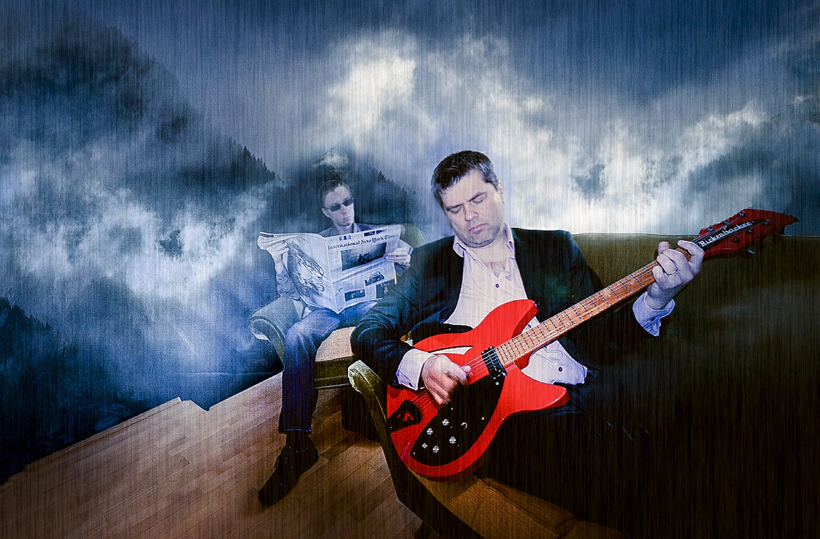No one can say Tom Tikka dodges life’s larger questions. Most songwriters working within popular music are content to rework a smorgasbord of tropes for each new generation, orbiting the same concerns, reaching the same conclusions. Going out on a limb seldom pays off. I do not know how old Tikka but his new release, This is My Happy Face, is the mature and serious work of an artist taking stock of many things.
The ten songs tackle one of two irrefutable facts of our lives, death. This Is My Happy Face’s initial inspiration, psychic mediums, expanded into something much more. “Bullet in the Head” serves early notice of that. Covering suicide in a song isn’t unheard of, but it demands above average artistic intelligence to make it work. It’s the arrangement, in this case, that makes this track an accessible listening experience.
Many of the songs are powered by a well-oiled configuration of guitar, bass, drums, and keyboards of one persuasion or another. “Bullet in the Head” is among them and the band achieves a crackling “live” sound despite the obvious presence of overdubs. “Heart’s On Fire” hits that mark as well. Sparks shoot off the vocal arrangement, the lockstep march of guitar and synthesizers during some passages, and the chorus. Writing about death and its associated possible experiences rarely sounds so inspired.
“Space Cowboys” ratchets down the high-spirited musical mood of the first two tracks in favor of a more careful, deliberate approach. One of the most attractive aspects of Tikka’s songwriting is how so much of it comes out of left field and those unexpected moments co-exist with the familiar. The guitar playing is a consistent highlight of the album, along with Tikka’s vocals, and enjoys one of its peaks with this song.
The album’s best chorus comes with the song “(I Wish I Could) Fly to the Moon”. The unusual context of the song’s lyrics doesn’t change the fact that it exists within a long tradition of such songs, the desire to get away, the longing for a better situation. Tikka tailors his language precisely without ever making it bloodless and the energy of his voice elevates the already fine writing several notches up the ladder. Its chorus brings everything home in dramatic fashion.
“Sweet Jesus!” rates as one of the album’s fully realized moments. There isn’t any filler, per se, dragging down the release, but some of its gems sparkle brighter than others and the sixth track is one of those jewels. He imbues the words with seemingly effortless yet understated charisma and the various instruments bounce with the same bright buoyancy. His underrated storytelling skills are a factor, as well, in the song’s success.
The title song’s passages of soaring pop architecture contrast well with its more sedate yet vigorous counterparts within the track. “This Is My Happy Face”, likewise, has one of the best central melodies included on this album and deviations therefrom are well-timed and never flat-footed. “Garden of Judas” will divide some admirers of the album. It isn’t difficult to imagine some listeners desiring a more introspective conclusion, a deeply serious note struck as he’s taking his leave, but the general thrust of the cut is in keeping with what precedes it. It is longer than many other tracks so there is some sense of making a definitive final statement. It works as such and wraps things up with some musical surprises as well. Kudos to Tom Tikka and the Missing Hubcaps for taking listeners through some difficult terrain with vulnerability, guts, and musical ingenuity.
Chadwick Easton

